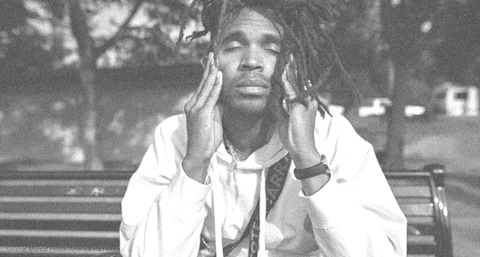
I went to the grocery store this weekend with my husband. We were just running in for a few items. To be clear, we don’t typically go to the grocery store together. Depending on the week, one of us will take on the job of grocery shopping. One of us. Not together. This is an important note because my husband and I shop very differently.
I have a general idea of what I need. I don’t stop to look at the options or the cost. I need milk, so I grab milk. I need eggs, so I grab eggs. It’s really simple in my mind—I need the items. The cost isn’t going to change the fact that I need the items. I’m not shopping for the most. I’m shopping for the necessary.
My husband works off a list. He pays attention to the details. He notices the price per ounce. He pays attention to the quantity. He likes having options. He likes to get the most for his dollar (which, to be fair, I love this about him). If there’s a reasonable difference, he’ll notice and get the biggest bang for his buck.
Two humans. Two very different experiences in the grocery store. And if you ask both of us if our individual approach to shopping is correct—we both would emphatically say yes.
And we’d both be dead wrong.
When I do the grocery shopping, someone inevitably has to go back to the store mid-week to get missing items. Hardly the voice of efficiency I want to think it is.
When my husband does the shopping, we often have items in bulk but end up tossing out unused items. A far cry from the sought-out value he’s looking for.
Plus, the grocery store aisles offer far too many choices for any of us to be able to navigate with a sense of economic rationality.
Humans—even if we’re being as rational as we can possibly muster—when it comes to money, are pretty irrational in every sense of the word.
In fact, regardless of whether we’re shopping for our weekly groceries or buying a big-ticket item, like a new car, we often have unconscious biases at play. These biases often influence our decision-making and can lead to outcomes—good or bad.
Here are a few unconscious biases that often play a role in our financial decision-making.
- Herd Mentality. A phenomenon that occurs when individuals mimic group behaviors rather than deciding as an individual. Most recently, the explosive response to the GameStop short squeeze is an example of what it looks like when humans leap—without looking. Often, the underlying mechanism fueling the herd instinct is the fear of missing out (FOMO), which can be exacerbated by social media. But, the herd instinct can result in a tipping point in the system—causing bubbles, booms, and busts.
- Sunk Cost Fallacy. When humans make an investment, and the investment fails, but they continue to make the investment. Most of the time, the rationalization is that they’ve invested so much already they can’t walk away now. An example of this would be making a large investment in a business or opportunity and, despite the initiative failing, continuing to make future investments because—you’ve come this far. (Side note—so many brands fall prey to this bias in their innovation efforts, but that’s a different article).
- Recency (or Availability) Bias. The belief that recent events will happen again soon. This bias often fuels panic buying. Who remembers the toilet paper shortage in 2020?
- Present Bias. The tendency to prefer a present-day reward over a larger, later-term reward. This bias is most obvious in saving for retirement. Over 90% of people worry about retirement, according to Rebel’s Retirement Readiness Trend Report; however, few of us are actually set up with enough money to retire.
How we use our money—how we save it, spend it, and invest it—is subject to unconscious biases, emotions, personal history, and present realities. Even more than that, each of our individual life experiences with money influences which biases we can be most susceptible to.
Money decisions and biases.
It’s no secret the commercial world can benefit from our very human tendencies and purchase behaviors. For example, Black Friday or Cyber Monday shopping leverages several of these biases to drive mass buying behavior. The study of consumer behavior in the world of retail is not a new phenomenon.
But, the finance industry is uniquely different than other consumer industries. The finance industry is tasked with getting humans to do things that are in direct conflict with our unconscious biases. Instead of spending money, the goal is to encourage saving. Instead of favoring short-term gains, the goal is to invest long-term. Instead of acquiring stuff, the goal is to accumulate wealth. In many cases, our unconscious biases can work against ideal outcomes in personal financial decisions.
So, what does that mean for the finance industry?
It means that when the finance industry understands the human biases that are actively working against the goals of personal finance, they can build products and services that successfully maneuver around the bias—and empower the desired outcome.
How do you understand the biases working against the goal? Biases can look like perceptions of money, emotions about money, pain points, and frustrations they encounter while managing money, and even the interactions and touchpoints they experience in their journey.
Once you understand the biases, the solution becomes focused on creating products that facilitate the journey at every touchpoint—not work against it.
As for our grocery trips, since we went together this weekend, perhaps we balanced each other out. But, if past performance is any indication of future results, I’ll have to make a mid-week pit stop at the grocery store. See what I did there?
